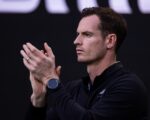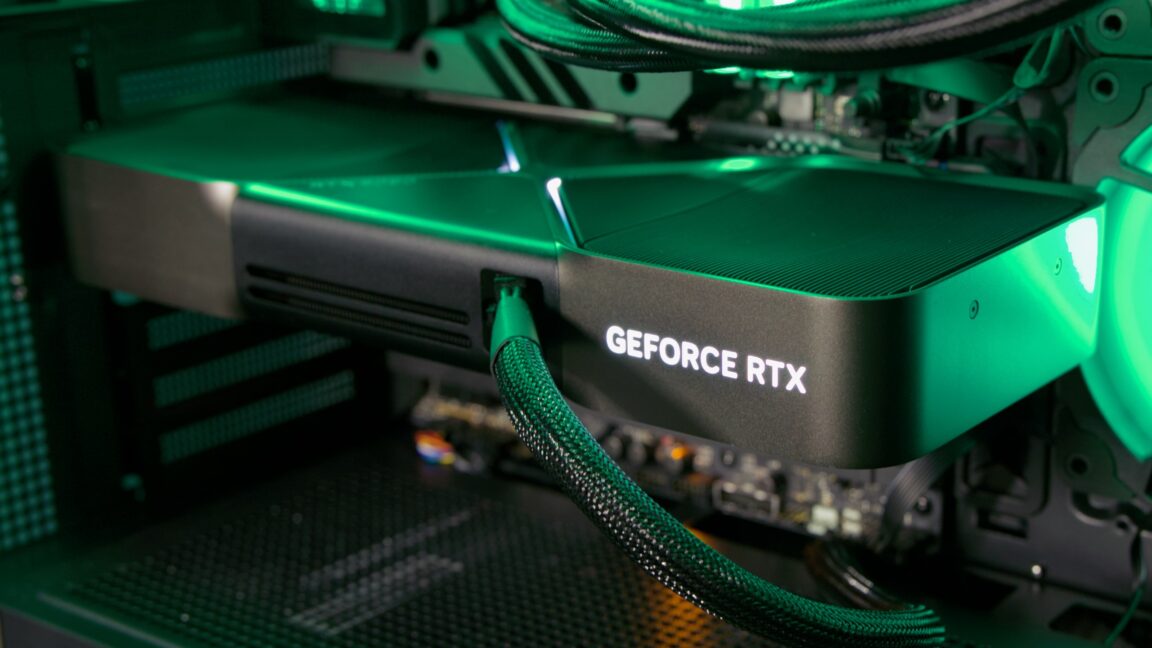While the Pokémon Company has been hosting esports events consistently since 2008, the game’s competitive side has not attracted the same attention as other titles. Wolfe Glick, the 2016 World Champion, wants to change this. In partnership with esports team Beastcoast, Glick is leading the charge to build creator-driven events that engage casual Pokémon fans.
Glick is highly ambitious — his desire to raise the bar has made him a critical figure in the Pokémon community. He began competing in Pokémon’s Video Game Championship series (VGC) in 2011. By 2016, he started a YouTube channel creating content about himself and this competitive format. The timing couldn’t have been better — that summer was the debut of Pokémon Go reigniting interest in the franchise and by August, he was crowned the World Champion.
However, Glick treated Pokémon as a hobby, not a full-time career until February 2020. 2019’s Pokémon Sword and Shield helped double his subscribers, which gave him the confidence to take the next step to further his goals. “It’s risky to be a YouTuber. The future is uncertain and the path forward would be less clear than my previous government consulting job,” Glick explained.
And then the world shut down. Glick’s timing was, once again, perfect. In March 2020, Glick had 174,000 subscribers. Since then, his channel has grown exponentially. He credits his success to experimentation with different formats (particularly a focus on video essays that made the VGC format accessible to a broad audience), a consistent upload schedule, a growing team to support him. Today, Glick is closing in on 1 million subscribers, making him the most popular competitive Pokémon YouTuber.
Event
GamesBeat Summit 2023
Join the GamesBeat community in Los Angeles this May 22-23. You’ll hear from the brightest minds within the gaming industry to share their updates on the latest developments.
But Wolfe Glick isn’t the kind of person that rests on his laurels. He wanted to raise the bar and elevate the community further. While The Pokémon Company’s tournaments worked for the competitive community, no one was running events that brought more casual fans into the competitive fold.
But Glick knew he needed a partner to bring his ambitions to life — enter Beastcoast.
Beastcoast and Wolfe’s partnership
Beastcoast is a smaller esports team, primarily focused on underserved communities. This lean, but thoughtful strategy has helped the team distinguish itself from higher profile esports organizations.
To Grant Zinn, founder and CEO of Beastcoast, the pressures and expectations of outside funding have led to a homogenized industry: “Modern day esports fueled by VC money is a lot like fast food. It looks the same and tastes the same. Beastcoast went down a different road.”
Pokémon was an attractive community to Zinn for a variety of reasons. Of course, the franchise is the most valuable media IP in the world — meaning a massive potential audience. On top of this, Zinn shared Glick’s vision to unify the different verticals within the community. Given that competitive Pokémon is also relatively easy for a new player to jump into yet hard to master, there was a real opportunity to grow the audience.
This desire to raise the stakes and make Pokémon esports more accessible was the foundation between Glick and Beastcoast’s partnership. Ultimately, Beastcoast’s support beyond guaranteed money sealed the deal for Glick: “In a lot of esports, the players are younger and need more hand-holding. I’m very self-sufficient so I was looking for a partner that would help me further my goals, not just give me money. Grant [Zinn] and Beastcoast wanted to team up for these events and handle the logistics while I managed the strategy.”
“We both knew that we couldn’t accomplish these events without Beastcoast’s infrastructure and Wolfe’s vibrant community. It’s mutually beneficial,” Zinn added.
A tale of two events
Glick officially joined Beastcoast in late September 2022. Since then, the team has already run two major events. On December 10, 2022, Glick and other prominent VGC players (such as Beastcoast’s James Baek and Aaron “Cybertron” Zheng) created a pop-up Pokémon gym in New York City.
This event had a clear focus of engaging with fans directly. Beastcoast pitched the idea and Glick ran with it. The event was sponsored by P448, a shoe brand. Its mid-town location, just blocks from Nintendo’s Rockefeller Plaza store, served as the venue. Due to this partnership, the event was relatively cost efficient, especially compared to the production-value focused Invitational.
The event was a major success. All 250 competitor slots were filled. Additionally, Glick’s video of the event is closing in on 1.8 million views at the time of writing, making it his fourth most watched video ever.
Beastcoast and Glick had no time to rest on their laurels — seven weeks later, they ran Wolfe Glick’s Pokémon Scarlet and Violet Invitational in Los Angeles. Rather than focusing on consumers, this event looked to bring creators into the fold.
Rather than featuring top pros, the event featured eight creators that had more casual connections to the Pokémon community. These included Ludwig, JaidenAnimations, Sykkuno, Alpharad, LilyPichu, BoxBox, ConnorEatsPants and VoiD, who took home the win.
This setup was designed to further Glick’s goal of making the competitive side of Pokémon approachable. “We wanted to show that people who aren’t super into Pokémon could play competitively with a little coaching and hard work. That way they could show their audiences that this game is approachable and accessible,” he said.
To add to this, Beastcoast and Glick teamed up with Beyond the Summit (BTS), a prominent esports production company known for its more intimate Summit events. Zane Bhansali, a creative producer at BTS, and Glick had discussed plans for this kind of creator-driven event for years, before either joined Beastcoast or BTS. “Pokémon is a great competitive scene that just needs personality. It’s what BTS excels at showcasing,” Bhansali said.
BTS’s added production value helped Glick introduce the competitive Pokémon scene in its best light and added legitimacy to the event.
Ultimately, the event was a major success. The 11 hour stream averaged over 18,500 viewers through the broadcast, reaching over 300,000 unique viewers. In comparison, 2022’s VGC World Championship averaged over 33,000 viewers. However, it’s important to note that Wolfe Glick’s Invitational aired on YouTube exclusively while the VGC World Championship aired on both YouTube and Twitch.
Uncharted territory
Running both of these events was a major step forward for Glick and Beastcoast’s ambitions for the competitive Pokémon community. They provided valuable data that will help the team decide on next steps. In fact, this lack of data and historical examples was a major challenge.
“There’s no precedent for a major in-person Pokémon Invitational, which means we had no viewership or data to support this type of event. It made some sponsors hesitant,” Zinn explained. The Invitational did secure two sponsors — Gaijin Entertainment’s War Thunder and 100 Thieves’ energy drink Juvee — the week of the event.
Juvee found common ground with Glick and Beastcoast as creator-led brand itself. “Juvee was made with creators in mind and we love supporting projects they’re passionate about,” said Sam Keene, Juvee’s general manager. “Exposure is certainly great for us but we also really love seeing the organic consumption of Juvee among the creators at the event. We’re not there forcing them to drink our product and it’s never just ‘placed’ on the table.”
That being said, this sponsorship also exceeded Juvee’s sales expectations. They beat their target for the event by 50%.

While these two brand deals did help to offset costs, the primary goal for both Zinn and Glick was to create a proof of concept, not see an immediate ROI.
Of course, the other potential concern is Nintendo and The Pokémon Company International (TPCI) itself. Nintendo has a somewhat antagonistic relationship with certain Super Smash Bros. community-run events. However, Pokémon’s competitive scene is under TPCI’s purview. This distinction may be helpful in the future. For now, there is no direct involvement from the developers in Beastcoast and Glick’s plans.
Of course, there is no desire from Glick or Beastcoast to compete with Nintendo or TPCI. Their focus is on creating an on-ramp to amplify the competitive scene, not creating an alternative to the VGC circuit. Emphasizing a positive brand image is a top priority.
“We’re very careful and cautious to create the best product possible that’s becoming of Nintendo properties,” Zinn clarified.
The path forward
While both Zinn and Glick plan to take a breath and evaluate their options for their events, both have a clear vision for their future.
“Tentpole events are going to be a big thing for us in the coming years … supporting our creators with events will differentiate Beastcoast and provide unique revenue streams and more opportunities,” Zinn confirmed.
Glick has teased a follow-up to his New York gym event numerous times, but — unsurprisingly — plans to raise the stakes. Traditionally, after a trainer has defeated all of the gyms in a region, they move on to face the Elite 4 and the champion — five difficult battles in a row. Glick’s vision is to bring this ultimate challenge to life.
“These events are a step forward in the history of competitive Pokémon, and I’m excited that I can lead the charge. But I’m just one piece of the puzzle. There’s a whole incredible community of people who are supporting me and I’m lucky to be standing on the shoulders of giants,” Glick affirmed. “I feel like I’m just scratching the surface of how we can engage with the wider Pokémon Community.”
With a community figure and events that can bring the community together, the future of Pokémon as an accessible creator-driven esport looks bright. Chess’ growth since 2020 could be a template that the Pokémon community draws inspiration from.
In the meantime, Glick won 2023’s Orlando Regional Championships and teased a partnership with Twitch Rivals — the platform’s creator-focused competitive series.
GamesBeat’s creed when covering the game industry is “where passion meets business.” What does this mean? We want to tell you how the news matters to you — not just as a decision-maker at a game studio, but also as a fan of games. Whether you read our articles, listen to our podcasts, or watch our videos, GamesBeat will help you learn about the industry and enjoy engaging with it. Discover our Briefings.




![PURE JOY! Husband and Toddler Daughter Greet Pro-Life Street Preacher Bevelyn Williams After She’s Released From Prison, Thanks To Trump Pardon [VIDEO]](https://www.thegatewaypundit.com/wp-content/uploads/2025/01/bevelyn-beatty-williams-1200x630.jpg)





